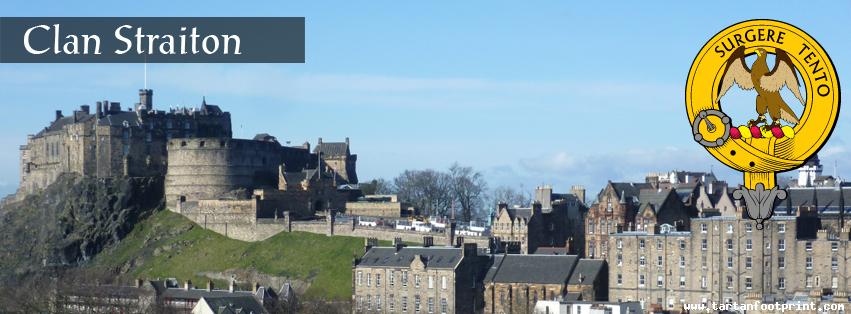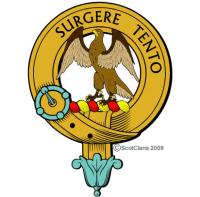
Clan Straiton
The surname Straiton, also seen as Straton and Stratton, is of territorial origin, coming from the barony of Straiton in the parish of Liberton in Midlothian. There is also a barony of Straiton in Ayrshire, and a barrony of Stratton in Fife.
In 1285, a Richard de Stratun is recorded as being a messanger of Alexander III, and he may be the same person as the Richard de Straton who was witness to a charter seven years later, in 1292.
Thomas de Straton, or Stratone, of Edinburghshire was on an inquest in Berwick in 1296, and in the same year he pledged allegiance to England's Edward I by signing, along with many other Scottish nobles, the Ragman Roll. Another two from the Edinburgh area, Alisaundre de Stratton and James de Stratton, also rendered their homage to the English king.
The Alexander de Straton who, in 1320, signed the baron's letter to the Pope, may be the same Alexander de Straton 'consanguineo nostro' who was given from David II a charter of land in Inverbervy (Inverbervie, Aberdeenshire).
A charter of the lands of Wester Mathrys was witnessed by John de Stratton, dominus ejusdem, in 1351, and in 1364, James of Stratton was valet to William de Moravia, 5th Earl of Sutherland.
A quitclaim for the lands of Gladsmure in Midlothian was witnessed, according to records, by John de Stratoun in 1427, and a different John de Stratoun, in 1431, was burgess of Montrose.
There were Straitons or Strattons recorded in Aberdeenshire.
In 1451, Cristina de Stratone granted a charter to the Friars Preachers in Aberdeen, and Brice Strayton, a Scot born in Berwick, had letters alonging him to settle in England in 1480.
Walter Stratone was, in 1502, the rector of Dunottar, and in 1593, a charter for the lands of Muretoun in the sheriffdom of Forfar were given to Arthur Stratoun.





